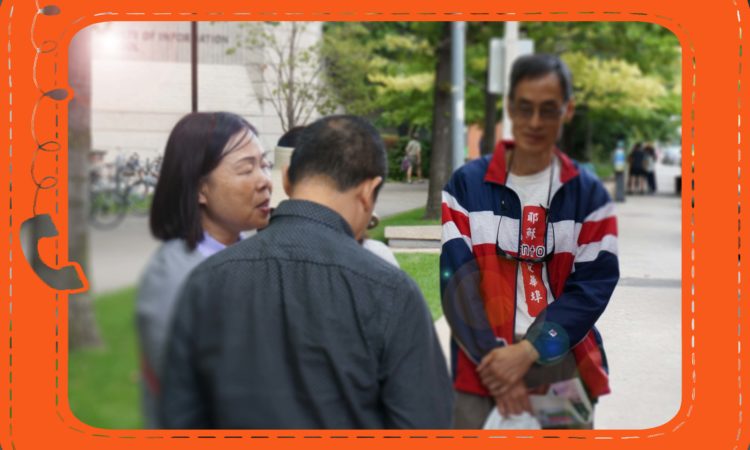路實 Lù shí 2022-06
In the last issue “Views on Education”, Xiaobing mentioned that “in the subconscious of parents, children’s excellence and success in school and society are part of their own and family success.” It reflects an essential aspect of the family view of immigrants from Mainland China: children are the center of families, and that family success is the primary goal. In this issue, we will follow this idea to look at the family view and situation of those families with children whose parents are between the age of 30-50.
Although parents in this age range might have immigrated to western countries and have gone through the transformation of traditional culture in a high-tech era, their understanding of home, fundamentally speaking, is still like “家” (the Chinese character of the word ‘Home’), in which a “pig” is under the “eaves.” “Home” means that there is money in the family to raise the next generation. It seems to be a continuation of offspring, but the equal emphasis is on the inheritance of family wealth from one generation to the next. Under such a family view, although the family seems to focus on children, it takes the worldly success of the family as the primary purpose. Such a family view is unfavorable in straightening the relationship between husband and wife or establishing the relationship between family members. It cannot withstand the influence and impact of modern trends of thought. Moreover, husband and wife are becoming economically more independent, while the level of mutual dependence and trust decreases. Furthermore, the older generation is becoming more and more “self-centred”; when living with their children, intervening or giving opinions to their children’s family life makes the situation and relationship more complex. Besides, divorce, single parenthood, and remarriage have made the relationship between parents and children no longer simple and pure. In addition, you may encounter couples who stay in Mainland China to make money while the other accompanies the child to study in Canada. And for some other families, after the couple immigrates and both have jobs, parents from the husband or the wife will come and stay together, to take care of children and help with housework. In these situations, while resolving some practical problems daily, this also increases the complexity and will quickly introduce challenges and difficulties to the family. With all these immigrants who do not know God nor do not believe in Jesus, they can only comfort themselves with “every family has a hard scripture to read” and try their best to be patient. Even so, there is still dissatisfaction and pain in their hearts.
People do wish their families to be harmonious and stable. As Christians, where and how can we help our fellow immigrants from Mainland China to see our view of family in Christ? First, we can cut into the topic from what most immigrants from Mainland China know and agree with: Home is where your heart is; otherwise, it can only be called a house and not home, and then introduce the love of Christ, so that their eyes value the relationship between family members. Secondly, guide them to think about the meaning of life inheritance, the destination of the soul, and the truth that exists in eternity. Finally, we need to let them know the family view in Christ, which can sort out the relationship between family members: the relationship between husband and wife is, first and foremost, one body. Children are God-given inheritance, and couples are to love their children with the love of Christ and guide them to fear God. Adjustment is required for the mutual dependence of the couples’ parents and to respect and honor them.
Regarding family and money- thank, praise, and serve God with a grateful heart. As such, we Christians need to spread and live out God’s will and the beauty of family. Life impacts the lives of one’s life, and family influences another family.

